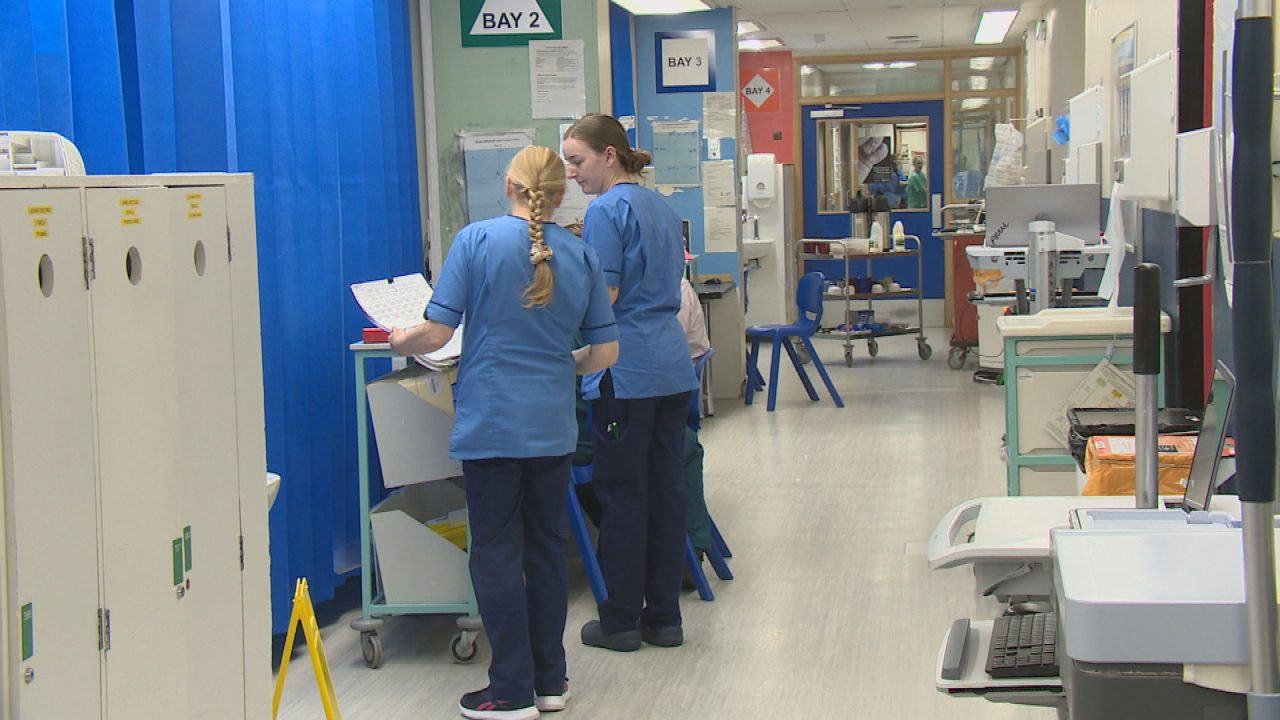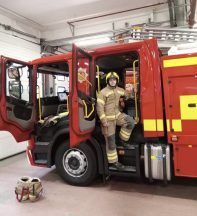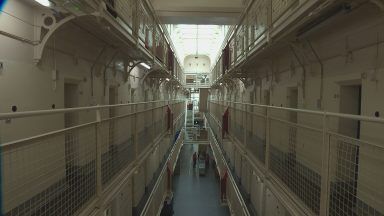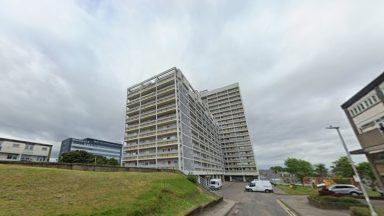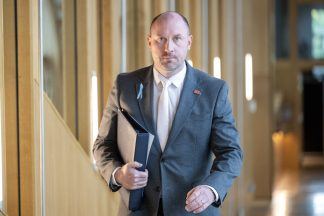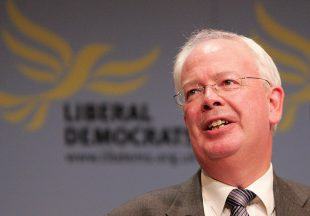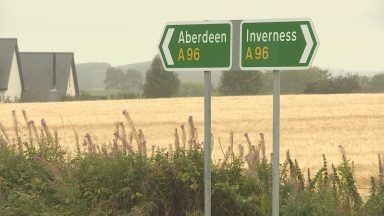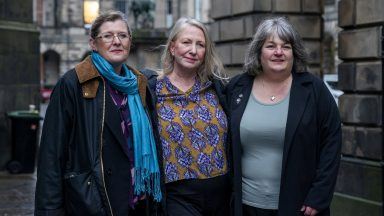Scottish health secretary set out new NHS improvement plans, including reducing waiting times and increasing capacity.
During a visit to Kirkland’s Hospital Flow Navigation Centre in Bothwell on Monday, Neil Gray outlined the Scottish Government’s plan featuring an “ambitious but realistic” aim to shift the balance of care from hospitals to primary care.
The plan includes using a £200m investment across the health and social care system.
“It’s about improving access to diagnostics; it’s about improving flow within A&E and within primary care systems; it’s about investing in the whole system to create capacity and flow to make sure people have access to treatment as quickly as possible,” Gray told STV News on Monday.
The money will be used to create 150,000 extra appointments and procedures across the country as well as plans to reduce backlogs in MRI, CT, ultrasound, and endoscopy procedures with a seven-day service in radiology, mobile scanning units, and more staff.
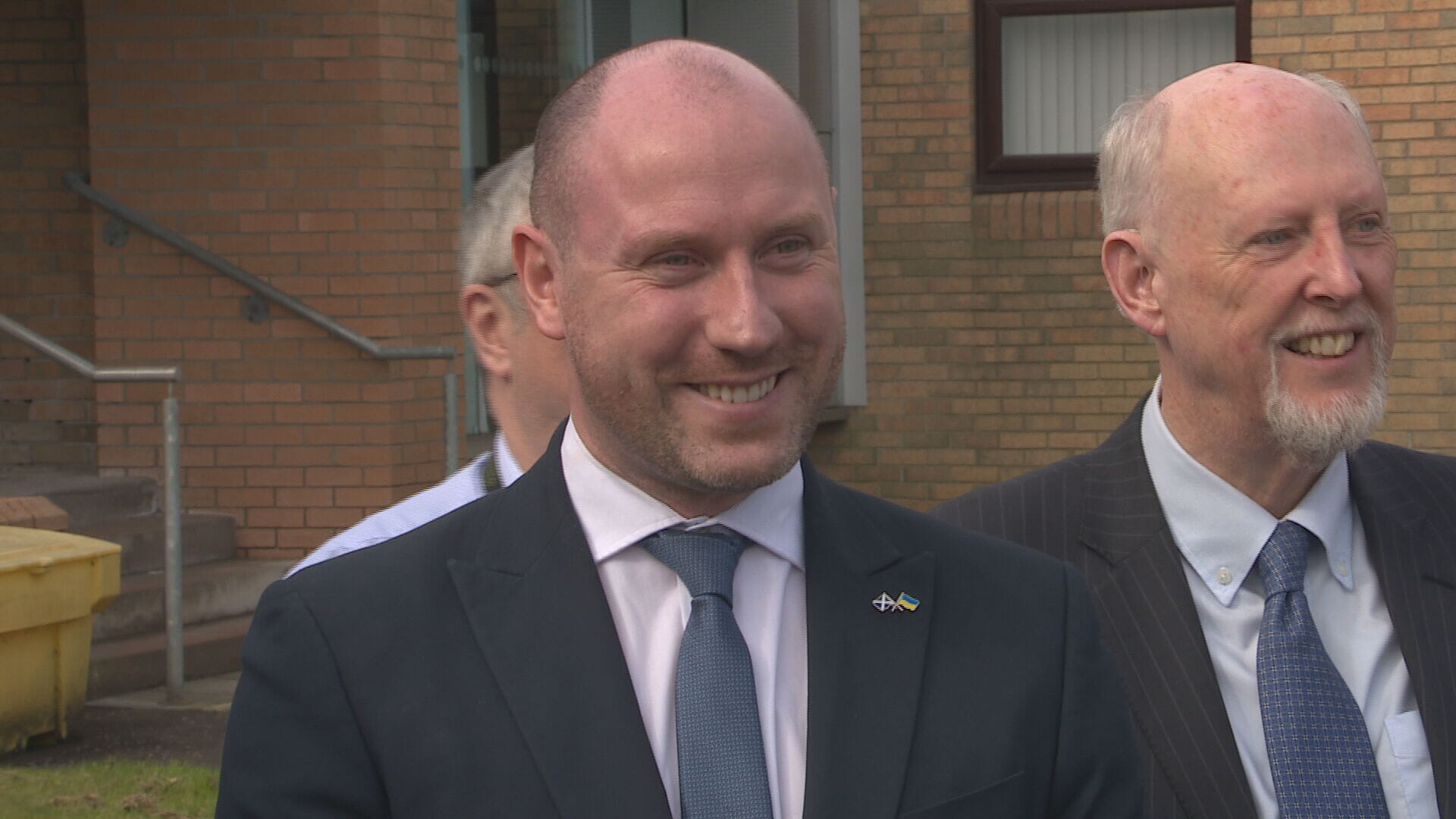 STV News
STV NewsThe goal is for 95% of referrals to be seen within six weeks by next March.
Gray also promised that Hospital at Home, which provides hospital-level care in the comfort of the patient’s home, will be expanded “to at least 2,000 beds” by the end of 2026
If the government makes good on that promise, it would make Hospital at Home the biggest hospital in Scotland.
Gray believes the new plans are going to make a “demonstrable difference” in bringing down the longest wait times while also improving capacity and flow through the whole system.
It will utilise more navigation flow systems like the one he visited in Lanarkshire that Gray toured on Monday, where multi-disciplinary teams consult with patients and first responders to direct people to “the right care at the right time”.
Jill Roche, an emergency medicine consultant at University Hospital Wishaw and a part-time navigation flow consultant, said she believes the system works for patients and staff.
“The situation in the emergency department is so challenging and stressful that we really do need these alternatives, and certainly, this is what we see as credible hope for the future,” Ms Roche said.
She said the vast majority of people don’t want to come to the emergency department.
“The vast majority of people don’t want to come to the emergency department, but they come because they really don’t think they have any other options. With flow navigation centre, we’re giving people other options.”
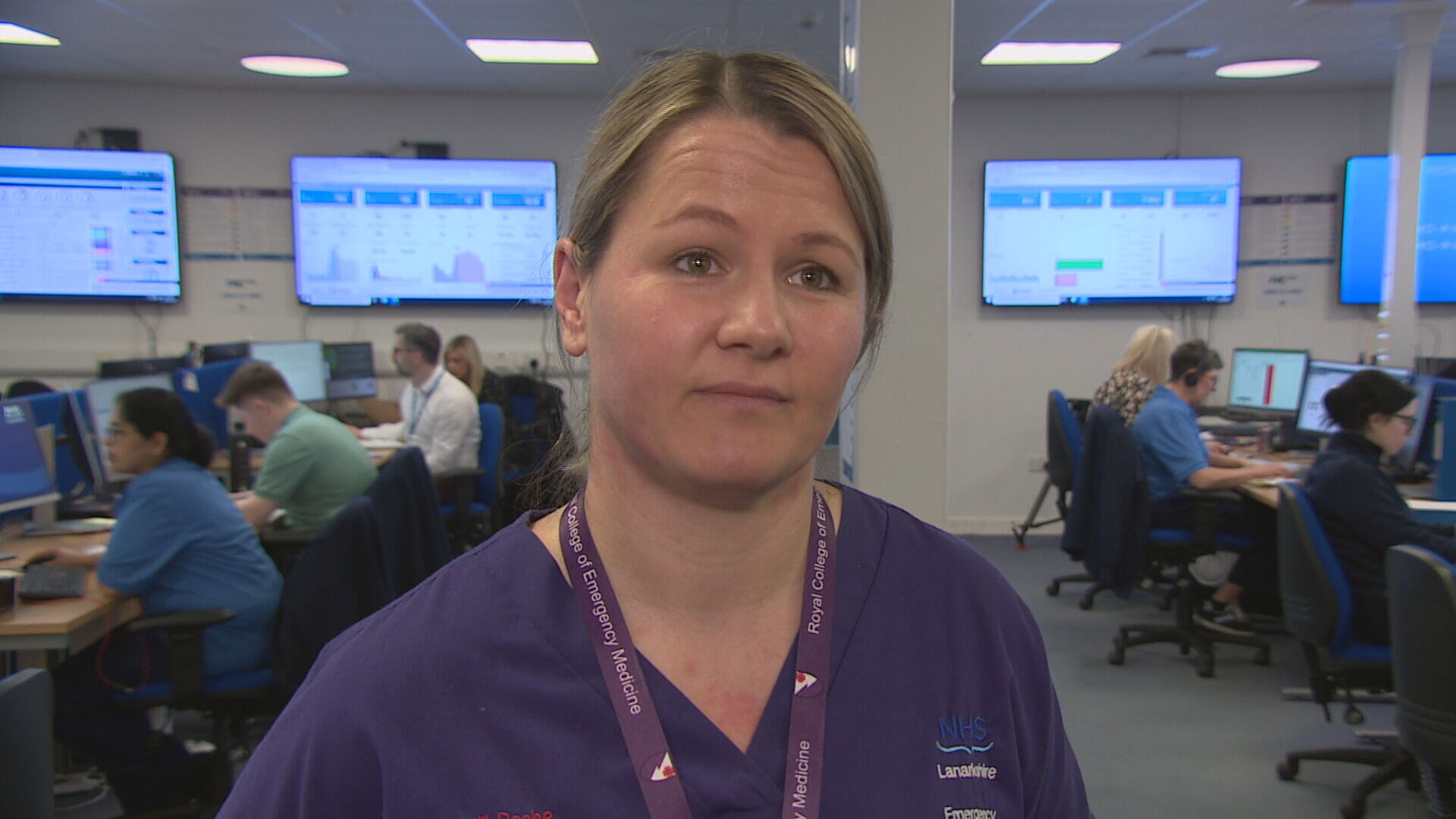 STV News
STV News‘This plan is ambitious but realistic’
Gray said the Scottish Government’s new plan is “ambitious but realistic” for delivering a more accessible NHS, reducing long waits and addressing the pressures in the system.
The Operational Improvement Plan also details a digital services expansion, which includes the Digital Front Door app launching in Lanarkshire in December.
It will be followed by a national roll-out in 2026, allowing people to securely access their hospital appointments, receive communications and find local services.
Over time, Gray said it will be expanded to include social care and community health services.
By this summer, there will also be specialist staff in frailty teams in every A&E department in Scotland.
Flow Navigation Centres, like the one in Kirkland Hospital, will direct patients to the most appropriate service for their condition, reducing the number of people who have to wait in A&E.
£10.5 million will also be invested in general practice to take targeted action to prevent heart disease and frailty.
“We want to increase the number of appointments, speed up treatment and make it easier to see a doctor. By better using digital technology, we will embrace innovation and increase efficiencies,” Gray said.
“This plan is ambitious but realistic and builds on the incredible work of our amazing health and social care staff across our health boards to deliver real change.”
The announcement comes just days after doctors from BMA Scotland warned that GPs will have to cut services without major and sustained investment.
The warning came as an Audit Scotland report found the Scottish Government is failing to deliver on its key missions for the sector.
The watchdog said despite a deal in 2018 with GPs to improve services, the number of family doctors has fallen, the pressure on them has increased, and patients are finding it more difficult to access care.
Scottish Conservative shadow cabinet secretary for health Dr Sandesh Gulhane MSP was also critical – calling the announcement a “desperate rehashed plan” that will do little to help.
“[The SNP’s] appalling failures have led to hundreds of thousands of Scots being stuck on NHS waiting lists, and corridor care becoming the norm in our hospitals,” Gulhane said.
“This latest announcement from Neil Gray is full of promises that should have already been met by the SNP and it exposes the overwhelming failure of Humza Yousaf’s Covid recovery plan.”
Follow STV News on WhatsApp
Scan the QR code on your mobile device for all the latest news from around the country


